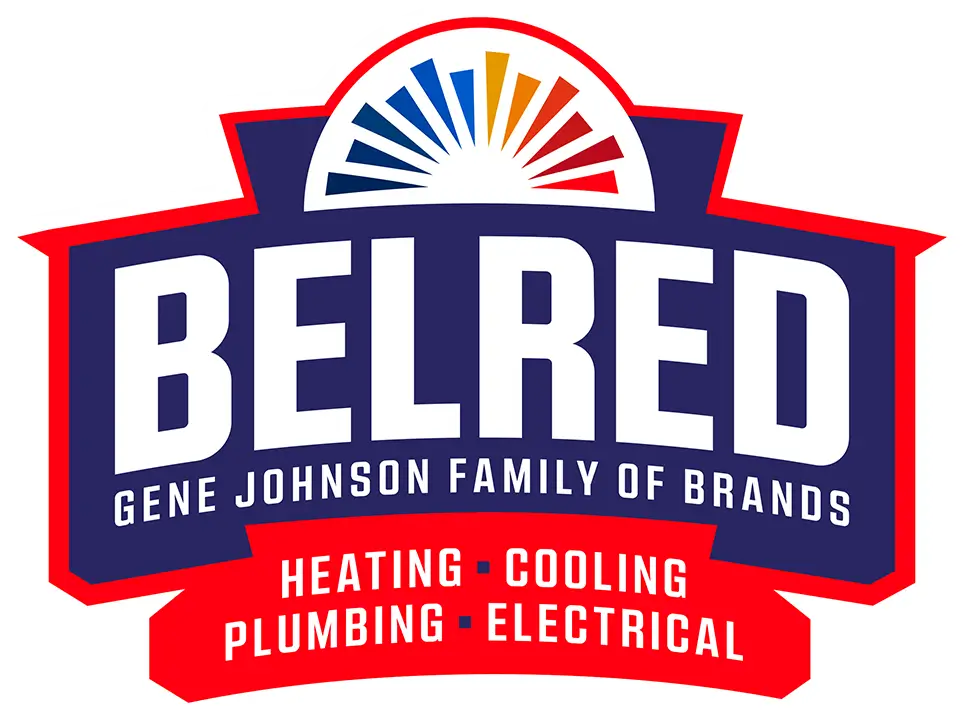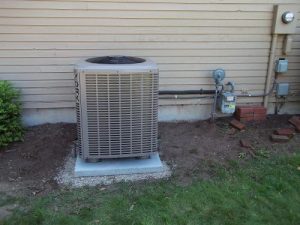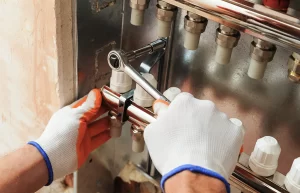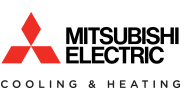Selecting a home heating and cooling system is a significant decision that impacts your comfort, energy costs, and environmental footprint.
With the wide variety of solutions available, it can be tricky for most homeowners to choose.
So, which would serve you better in terms of heating and cooling your home – an air conditioner or a heat pump?
This article compares ACs vs heat pumps, providing you with all the information you need to make a sound decision.
What is an Air Conditioner (AC)?
Air conditioners are designed to lower the temperature and dehumidify the air inside your home. They push the hot air from inside your home to the outdoors, providing a cooling effect and making your indoor space more comfortable. This makes air conditioners particularly great partners during the summer months.
AC Components
Key components that are integral to the functioning of an air conditioner include:
Compressor
This component pressurizes the refrigerant, which is a fluid that absorbs and removes heat from your home. It aids the refrigerant in its transformation from low-pressure to high-pressure gas. This is an essential step in the whole cooling process.
Condenser
The condenser is located in the outdoor unit of the air conditioner. It receives the high-pressure, high-temperature refrigerant from the compressor. As the refrigerant flows through the condenser coils, it loses heat to the outside air and transforms from a gas to a liquid.
Evaporator Coil
The evaporator coil houses the cold refrigerant. As warm indoor air blows over the cold coils, the refrigerant absorbs the heat and turns it back into a gas. The air, now cool and dehumidified, is then circulated back into your home.
Air Handler
The air handler houses components like the blower motor and the fan. They control and direct the flow of air around your home. After the air is cooled and dehumidified by the evaporator coil, the air handler distributes it throughout your home, providing a refreshing cooling effect.
What is a Heat Pump?
A heat pump, on the other hand, is a versatile device that can provide both cooling and heating. Unlike a traditional AC, a heat pump works by transferring heat from one place to another. In the summer, it acts like an AC by extracting heat from inside your home and moving it outside. In winter, it does the reverse, absorbing heat from the outdoor air and transferring it inside.
Heat Pump Components
Though similar to air conditioners, heat pumps have some distinguishing components that make their operation possible:
Compressor
Compressors in heat pumps function similarly to those in air conditioners. They pressurize the refrigerant in the unit. They play a central role in the heat transfer process in heat pumps.
Reversing Valve
This special component is what allows the heat pump to switch between heating and cooling modes. It changes the direction of the refrigerant flow, enabling the heat pump to act as both a heating solution in the winter and cooling in the summer.
Indoor Coil
The indoor coil functions as either an evaporator or a condenser based on the mode of operation. When the heat pump is cooling, the indoor coil acts as an evaporator, drawing heat from your home’s interior. During the heating mode, it acts as a condenser, releasing heat to warm your home.
Outdoor Coil
The outdoor coil has a similar dual function as the indoor coil, albeit in reverse. In cooling mode, the outdoor coil works as a condenser, releasing the heat absorbed from your home to the outside. When heating, it behaves like an evaporator, absorbing heat from the exterior environment to transfer it inside your home.
AC vs Heat Pump Comparison: Costs, Features, and More
While both are excellent choices for maintaining a comfortable indoor environment, the decision between AC vs heat pump isn’t always straightforward. It’s a choice that requires consideration of costs, installation, longevity, maintenance, and more. This in-depth comparison will help you understand the benefits and drawbacks of each, so you can make an informed decision that best meets your home comfort needs.
Cost
Heat pumps tend to be more expensive than air conditioners for initial installation, due to their more complex dual-function capabilities. However, considering they can heat and cool spaces, you might eliminate the need for a separate heating system, potentially saving money in the long run.
Below is a comparison table with sample calculations:
| AC Unit | Heat Pump | |
| Initial Installation Cost | $3,500 – $7,500 | $5,000 – $10,000 |
| Annual Operating Cost (Cooling) | $120 – $460 | $120 – $460 |
| Annual Operating Cost (Heating) | N/A | $500 – $2,000 |
| Total Cost Over 15 Years | $5,300 – $14,400 | $11,800 – $46,000 |
Note: Actual costs may vary based on factors such as unit size, location, usage, and local energy prices.
Installation
Installation processes for AC units are often simpler than for heat pumps due to the latter’s dual-function nature. However, it’s essential to use professional AC repair, installation, and maintenance services to ensure both systems are installed correctly, optimizing safety and efficiency.
Longevity
Heat pumps and air conditioners are both sturdy devices designed to last between 10 to 15 years. However, their durability is dependent on multiple factors like quality of installation, regular maintenance, and the climate in which they operate.
For instance, heat pumps might have a shorter lifespan in regions with severe winters due to the strain put on the system.
Cooling and Heating Capabilities
When it comes to cooling, both heat pumps and AC units perform equally well. The fundamental difference is that an AC unit can’t provide heating, while a heat pump can. Therefore, heat pumps can be a versatile solution for homeowners in regions with mild winters.
Energy Efficiency
Heat pumps tend to be more energy-efficient than AC units. This is because heat pumps transfer cold air rather than generate it. This results in a significant reduction in energy use and contributes to lower utility bills, making them an attractive choice for energy-conscious homeowners.
Maintenance
Maintenance needs for both systems are similar. Regular check-ups, cleaning, and occasional part replacements are necessary for optimal performance. Remember to schedule professional AC repair, installation, and maintenance services for your unit at least once a year or more if the manufacturer recommends it.
Climate Considerations
The choice between an AC unit and a heat pump may largely depend on your local climate. For regions with hot summers and mild winters, a heat pump is a cost-effective and efficient choice. Conversely, in regions with harsh winters, an AC unit paired with a separate heating system such as a furnace may prove to be a more reliable and practical solution.
So, Which is Right for You?
Well, that depends on several factors.
When deciding between an AC vs heat pump, you must assess your individual needs, your current home infrastructure, and the climate in which you live.
If your primary requirement is cooling and you already have an existing, efficient heating system in place, an air conditioner can be an economical and effective solution.
AC units are capable of providing powerful cooling for hot summers and are generally less expensive upfront compared to heat pumps.
On the other hand, if you’re in a position where you need to replace or install both heating and cooling systems and you live in a region with relatively mild winters, a heat pump could be the most advantageous choice.
Despite their higher upfront costs, heat pumps offer both heating and cooling capabilities, leading to potential savings down the line.
Plus, their superior energy efficiency can also lead to reduced utility bills over time.
Your ultimate goal is to provide comfortable living conditions in your home, so consider all factors before making your decision.
Optimize Your Home for Comfort
While personal efforts in enhancing insulation and sealing gaps contribute significantly to home comfort, the ultimate performance of your heating or cooling solution lies in its quality, installation, and maintenance.
Investing in a high-quality air conditioner or heat pump and having it professionally installed can make a world of difference in its efficiency and longevity.
A professional service provider can assess your home’s specific needs and help you choose the right system for your circumstances. They can also ensure that the unit is installed correctly and running at peak efficiency – an important aspect often overlooked in DIY installations.
Beyond installation, a reliable provider can offer ongoing AC repair and maintenance services to ensure that your system continues to operate optimally, providing you with the comfort you need year-round.
Regular professional maintenance can also extend the lifespan of your unit, saving you money in the long run.
Professional Cooling and Heating Installations
To ensure the optimal performance of your chosen system, professional installation is essential. BelRed offers top-notch AC repair, installation, and maintenance services for both air conditioners and heat pumps.
Our team of experts will help you select the right system for your home, and ensure it is installed and maintained to the highest standards. We don’t just install your system; we provide ongoing support to ensure that it continues to work efficiently, keeping your home comfortable in every season.
Contact us today to optimize your home’s heating and cooling efficiency.







